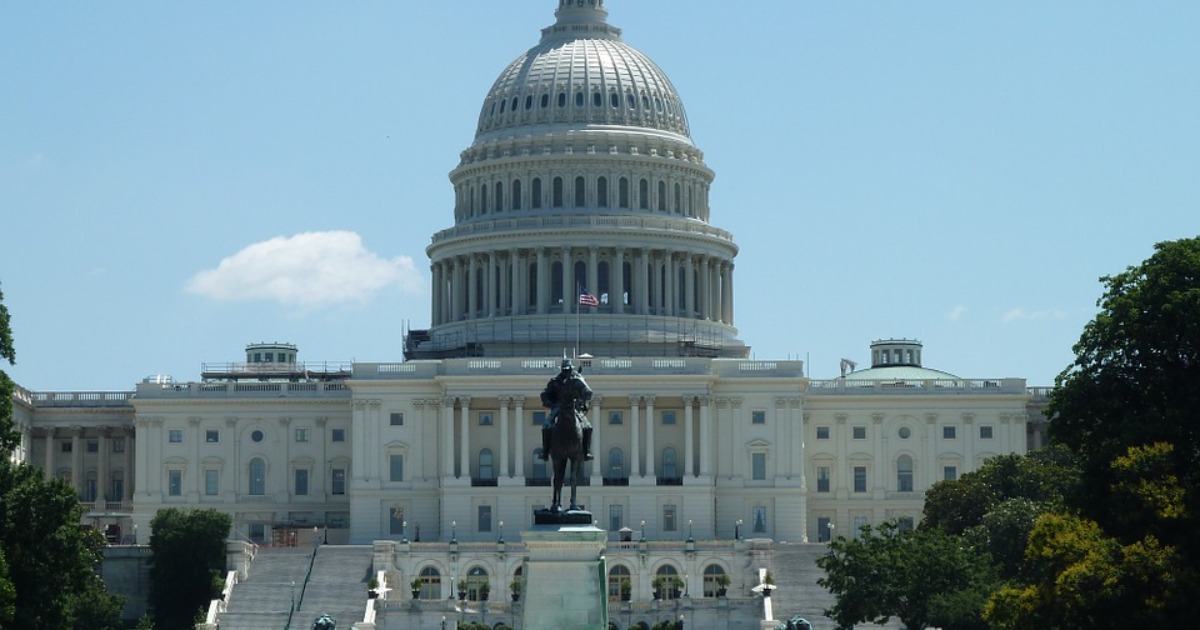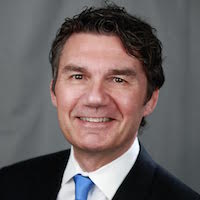US: There Is Always Hope
An alternative view on the inevitability of a politically impotent America.
April 18, 2018
America’s political, economic and social reality dramatically changed with the election of Donald Trump as President. So did the image of the American nation, both at home and abroad.
This change had been in the making for some decades. The immense moral decay of the Republican Party and the all too often passive bystandership of the Democratic Party prepared the ground for the arrival of Trump as a political tipping point.
But the election of Donald Trump, his policy actions as well as a series of mass shootings, which recently peaked in the high school mass murder in Parkland, Florida, have changed this country profoundly.
As we learn from Newton’s laws, any action draws its counter-action. And maybe, just maybe, the ruthlessness and inconsiderateness of Trump has awakened the very forces that will possibly change the United States for the better.
Fifteen months into Trump’s presidency, there are some signs that suggest that there is a positive transformation toward a more participatory democracy – and that it might have some legs.
Marching for gun control
I marched with 200,000 people in New York City last month demanding strict gun control. I had not demonstrated in 40 years.
What I found astonishing was that there were not only many young people marching for this cause, many too young to vote, but that, in addition to people like myself, there were also a lot of old people. People with walkers or in wheel chairs, many accompanied by their nurses.
Americans do not tend to hit the streets in protest, it’s not in their DNA. But the marches have continued, covering a wide range of issues from immigration to science to gun control.
There also is depth to this new-found activism. The speakers did not just focus on the issue at hand. Often, the plan is to vote and to run for office, to participate in democracy.
Liberal solutions favored
The off-year elections in 2017 already showed how powerful this type of activism is. In poll after poll on issues, the majority of Americans, sometimes the vast majority of Americans, favors “liberal” solutions to society’s challenges. Also, according to the Pew Research Center, 48% of registered voters in the United States identified as Democrats in 2016 vis-à-vis 44% who identified as Republican.
At the same time, caution is well-advised. After all, Democrats are generally far less likely to show up to vote than Republicans. The Dems’ voters are fairly passive in general elections. And they are no-shows in off-year or midterm elections. This applies especially to the young among them.
November 2017 was different. I have never had much interest in local issues from zoning laws to traffic lights. I really never voted for mayor of my small town or the composition of my county council.
As the people in the county I live in just outside New York City are quite rich, Republicans held quite a few mayoral posts and seats on the county legislature in this otherwise liberal state.
This changed this past November. As Democrat-leaning voters went to vote, Republicans were expelled from nearly every position they held in my county.
Part of a wider trend
My county was hardly unique. In Virginia, a state that narrowly voted for Hillary Clinton, but where Republicans held a 15-seat majority over Democrats in the 100-member House of Delegates, Virginia’s legislative chamber, the 2017 elections were a watershed moment.
Democrats overturned 14 of those seats with a brand-new slate of candidates. Not only did Democrats turn out as voters, they also contested races as candidates which in the past they had simply surrendered to Republicans.
The only reason, why Virginia’s House of Delegates is not tied at 50-50 is that in one race the Republican and Democratic candidate won the same exact number of votes — and the Republican got his seat via lottery.
There are Democratic candidates popping up in races small and large all across the country. Many of these candidates are women. Races are being contested by Democrats for the first time in very conservative districts in red states that were uncontested in the past.
Even more shockingly, residents in traditionally red (read: Republican) states seem to find the courage on taking a stand. Last month, teachers in West Virginia, Oklahoma and Kentucky have gone on strike demanding better pay. This led the Republican Governor of Kentucky bizarrely to claim that students were raped and took drugs while his state’s teachers were on strike.
Activists campaign on issues and for candidates not only in their home districts, but across the country. In a country where politics is all about money, many of these grassroots movements have proven to be formidable fundraisers.
Establishment Democratic Party candidates are also increasingly being asked about the sources of their campaign funding. “Have you ever taken money from the National Rifle Association (NRA)?” is probably the question most frequently asked.
There seems no letting up of the pressure that this new activism has created and the latest high school shooting has drawn many very young people into this pool.
Generation Z
There is some hope that an enraged Generation Z might turn out to be the accelerant that saves America. Young Americans are overwhelmingly committed to protect the environment and favor greater income equality.
There should be no doubt, though. The United States will never be Denmark. Not because there is anything wrong with Denmark, but the base for a social-democratic governance model is small. Maybe some 30% of Americans support such an approach.
The ideas of self-reliance and individualism, however misguided, are deeply ingrained in the thinking of Americans.
But then, again, who knows? As economic pressure on the middle class rises, the American people may no longer fall so longingly for the notion of rugged individualism.
This fall, the city of Stockton, California will start trying out universal basic income for 18 months. Led by its 27-year old mayor, Michael Tubbs, it will start this controlled experiment by disbursing $500 a month to 100 residents, no strings attached.
The election of Donald Trump has been a wakeup call. Democracy and prosperity only last if all of us tirelessly contribute to them – and if we make sure this nation doesn’t allow Republicans to turn the country into a one-armed bandit that robs the poor to allow the rich to live even loftier lives. There is hope.
Takeaways
America’s political, economic and social reality dramatically changed with the election of Donald Trump as President. So did the image of the American nation, both at home and abroad.
The ideas of self-reliance and individualism, however misguided, are deeply ingrained in the thinking of Americans.
As economic pressure on the middle class rises, the American people may no longer fall so longingly for the notion of rugged individualism.
There are some signs that suggest that there is a positive transformation toward a more participatory democracy – and that it might have some legs.
There is some hope that an enraged Generation Z might turn out to be the accelerant that saves America.
Read previous

Global Society
The Decline of the West
April 17, 2018
